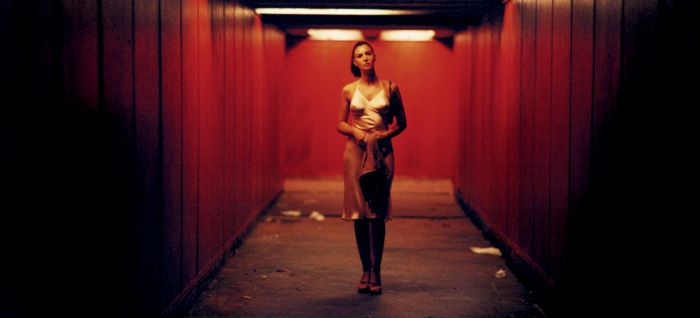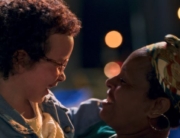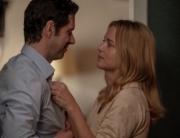Gaspar Noé’s Irreversible came out in 2002, winning awards and inciting controversy. Regardless of how one feels about it, Noé was undoubtedly bold. Not only does the narrative move backward in time, starting with the aftereffect of a brutal crime and then tracing back to the events that led up to it, but the scenes themselves, especially at the beginning, embrace chaos completely. The camera refuses to settle in any one place, the action is constant, the characters are almost feral, the techno score pounds. Even as the story moves back in time, and the camera is more settled, there is a frantic, disconcerting energy to the characters, who are so needy as to seem animalistic, and who almost refuse to remain still. Add to this Noé’s perhaps unflinching, perhaps gratuitous use of violence, culminating in a near 10-minute rape scene that has been both defended and lambasted.
Noé has now released a new cut, which is the same story now told in chronological order. He argues that, viewed this way, it is now a different film, no longer a tragedy but “a drama that brings out the psychologies of the characters and the mechanisms that lead some of them to a murderous barbarity.” This, perhaps, should help viewers realize that Irreversible is, in his eyes, not the lurid B-movie its critics say it is.
The first iteration is something of a puzzle. It moves from violence and chaos to the semblance of understanding. In a violent bar scene in a gay club, in which Marcus (Vincent Cassel) belligerently searches for a pimp knows as La Tenia, viewers gradually realize his reasons for doing so: His girlfriend Alex (Monica Bellucci) was brutally raped by this pimp in an underpass. It’s also unclear at first who his companion, Pierre (Albert Dupontel), is. We try to figure out all these things as we watch.
Needless to say, this new cut is the opposite. We do not piece together what is happening but are introduced to the characters, see clearly enough what event leads to what, and experience a build toward the violent energy of the crime. To Noé’s credit, this edit does not feel more conventional than its predecessor. It is, however, revealing to watch, and not for reasons Noé intends. The new version both lays bare and confirms his limits.
I don’t mean that dismissively. Certainly, this film has enough stylistic heft to command attention, and certain scenes are very compelling. Noé has a talent for coaxing an electric energy from his actors and for filming his scenes with cuts, music, and angles that match that energy. This is perhaps best exemplified by the party scene, in which Marcus inadvertently chases Alex away with his drunken behavior. Energy, I guess, is the most striking aspect of Irreversible: Straight Cut, a kind of animism that transforms from the entitled breast-beating of Marcus and the desperate needling of Pierre into a violence that is not so different from that of the rapist in the underpass in terms of brutality. This is, I think, a generous estimation of what Noé is up to.
However, Noé’s interest in his characters is little more than skin deep. Consequently, both versions, though high on horror and adrenaline, lack weight. This is much more obvious when the events are viewed chronologically and there is no puzzle to piece together. It is not that he has no interest in them whatsoever. A few of the moments in which we observe Alex alone hint at depths that the film neglects to explore. The men don’t have much going on with them other than their desire for Alex: the pride and recklessness of one (Marcus) and the meekness and neediness of the other (Pierre). The story doesn’t end up being very revealing when viewed in either direction. Even if you discern or guess at Noé’s intentions (as I did above), one feels that they are lost among Noé’s various stylistic tricks or in the frantic pace, as though the filmmaker were actually losing himself in the animalistic energy he seeks to portray.
This is best exemplified by the infamous rape scene. There is no reason for artists to shy away from portraying brutality, nor to resort to moral obviousness when they do so. The scene is supposed to be painful, and it is. I will say that, when I was watching (both times), I couldn’t help but feel as though Noé were in fact relishing in its violence. Regardless, I don’t think it works, and for similar reasons that both films do not succeed. As it is, it is simply a horrifying act portrayed, albeit convincingly, and did not leave this viewer with the impression of a filmmaker in command of his material.
Though there are impressive and compelling aspects to the new version, it is hard to conceive of it as being either a tragedy or a drama: There’s simply not enough there. Gaspar Noé may have indeed lost himself in the animal passions of his characters. Regardless, he did not make a film that transcends them.







Leave A Comment